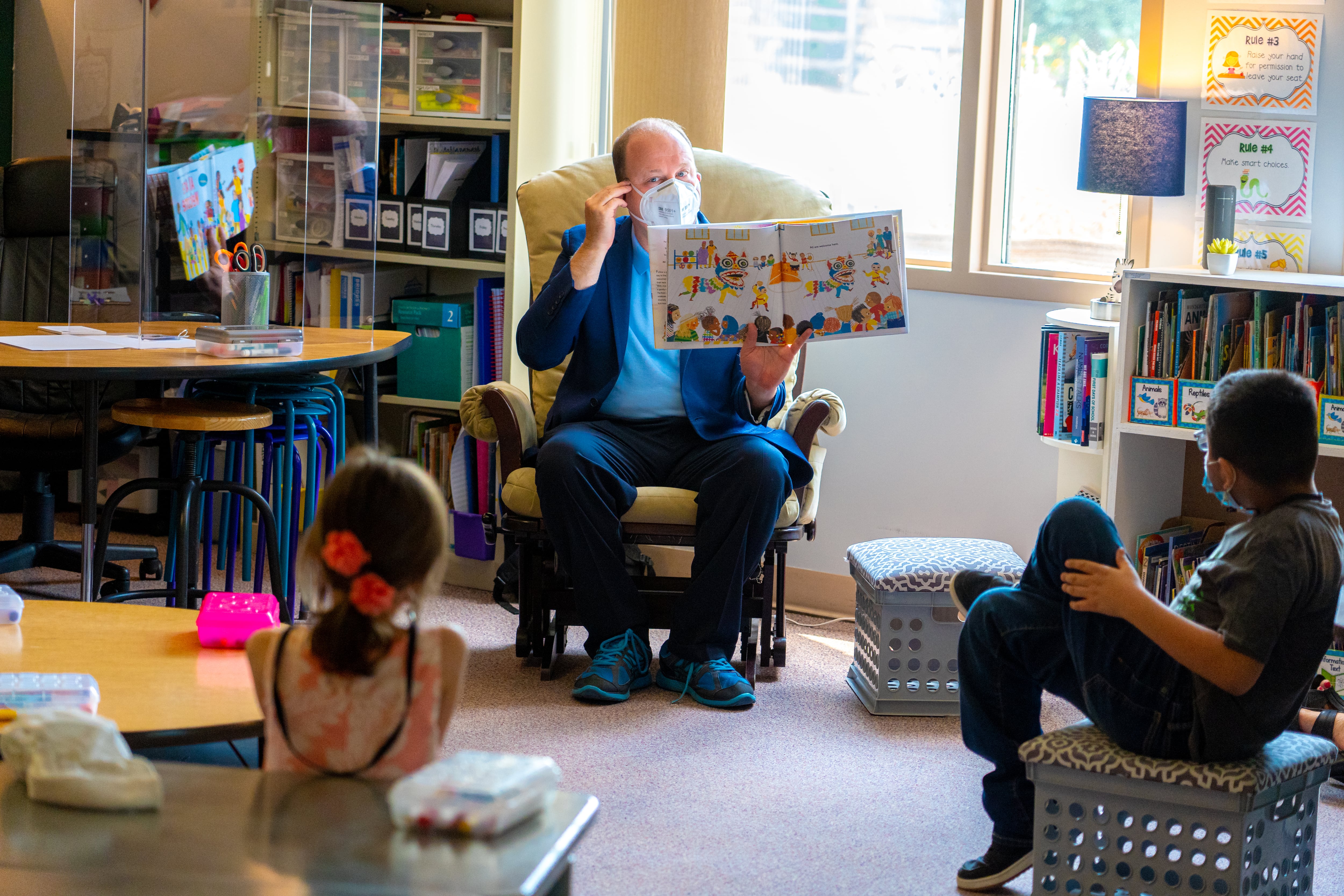Attorneys for Gov. Jared Polis and other officials say a lawsuit filed against the state over Colorado’s new universal preschool program is based on a flawed interpretation of special education law and the state constitution.
That argument came in a motion to dismiss the suit filed Thursday in Denver district court. The motion represents the state’s response to an August lawsuit brought by six Colorado school districts and two statewide education groups claiming the universal preschool program is harming children with disabilities and breaking financial promises to families and school districts.
The motion to dismiss argues that the plaintiffs disapprove of the state’s choices on how to run the universal preschool program, but that state officials have the latitude to make those choices under the law.
“Plaintiffs’ concerns should be addressed through the policymaking process, not the judiciary,” the motion states.
During a press conference announcing the lawsuit on Aug. 17, several school district leaders said they’d tried to give feedback to state officials during the universal preschool planning process, but were ignored.
The lawsuit was filed by the Colorado Association of School Executives, the Consortium of Directors of Special Education, and the 27J, Cherry Creek, Harrison, Mapleton, Platte Valley, and Westminster school districts.
In the suit, the plaintiffs alleged that children would miss out on vital special education services or full-day preschool classes, or would miss preschool altogether, because of problems with the state’s online application and matching system. The lawsuit named Polis, who’s long championed the universal preschool program, and leaders at the Colorado Department of Early Childhood and the Colorado Department of Education as defendants.
The $322 million universal preschool program, funded partly through a state nicotine tax, launched in August and offers 10 to 30 hours of tuition-free preschool a week to all Colorado 4-year-olds, and 10 hours a week to some 3-year-olds.
More than 45,000 children are enrolled in the program, including in school district preschools, private preschools, and licensed home-based programs.
BridgeCare, the state’s online application and matching system, is at the center of the lawsuit. Starting last winter, preschools listed their offerings on the platform and families used it to apply for a spot. A computer algorithm then matched kids to seats.
But according to the lawsuit, the system didn’t always work, leading to confusion and frustration. In some cases, it led to preschool matches for students with disabilities that meant school districts couldn’t fulfill the requirements spelled out in federal special education law.
But Thursday’s motion to dismiss argues that federal special education law makes it the state’s obligation to ensure students with disabilities are properly served — and that school districts’ legal obligations to such students start only after the state matches the children to district preschools.
The motion also argues that while the Colorado Constitution’s local control provision gives school districts authority over things like instruction and teacher employment, it doesn’t grant them “unmitigated control over how students apply to and are matched in a state-funded preschool program.”
Finally, the motion asserts that the school district plaintiffs speculated they would see enrollment drop, lose funding, or have to turn preschoolers away on the first day of school, without concrete proof that those things happened.
At the August press conference on the lawsuit, a Westminster district leader described how the district had been forced to turn away a 3-year-old preschooler that morning.
The state is facing two other lawsuits over the universal preschool program, both brought by religious preschools claiming that state’s anti-discrimination requirements violate their religious beliefs.
The state has addressed some of the problems cited by the plaintiffs in the school district lawsuit in recent weeks. For example, in late September, the state began allowing preschools to enroll “walk-ins” on the spot instead of making them wait until they’d been matched through the state’s online system, a process that can take days or weeks.
Ann Schimke is a senior reporter at Chalkbeat, covering early childhood issues and early literacy. Contact Ann at aschimke@chalkbeat.org





